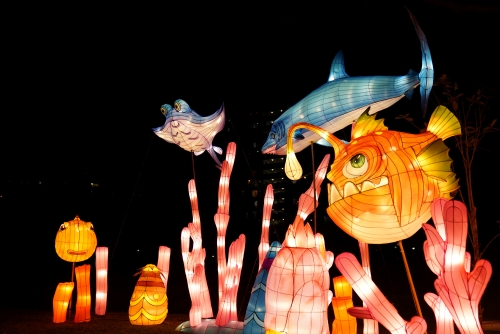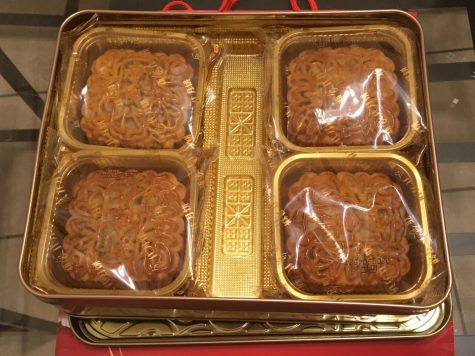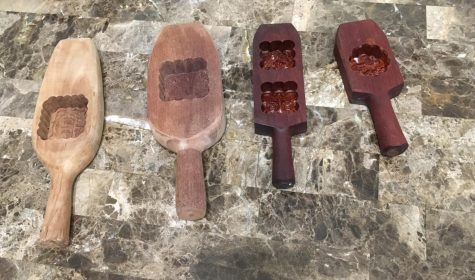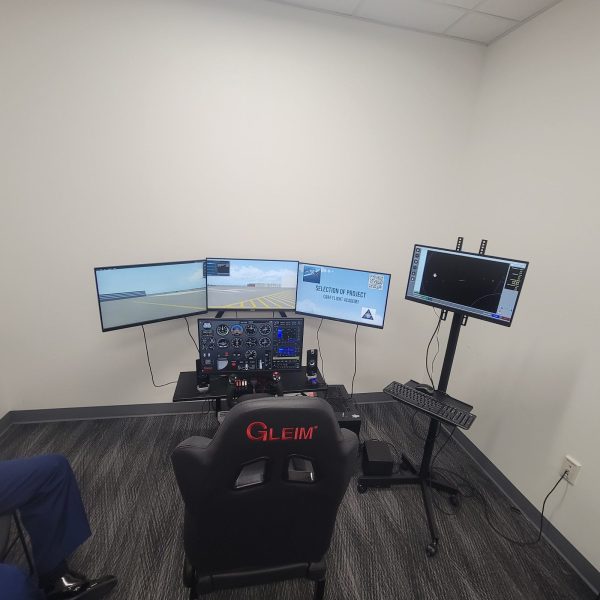Sharing the Moonlight: The Mid-Autumn Festival


“Mid-Autumn Festival is Aug. 15 in the lunar calendar, when the moon is the fullest,” Hua Shao said. “Mid-Autumn Festival is a time for family reunion and giving thanks to God for the autumn harvest.”
Shao is a component engineer from Hangzhou, China. She said Mid-Autumn Festival is on Aug. 15 because the date is determined by the Chinese Lunar Calendar, and because of this, the date of the festival in the modern Gregorian Calendar varies from year to year.
“The legend [of Mid-Autumn Festival] is that Hou-Yi, a hero in ancient times, obtained a magic potion…[and] gave this potion to his wife, Chang-e, for safekeeping,” Shao said. “[When] trying to protect the magic potion from a robber, Chang-e took the potion herself after which she was lifted up to the moon.”
According to Shao, the tradition behind Mid-Autumn Festival, besides celebrating the harvest, is to carry on Hou-Yi’s festival of remembrance of Chang-e. However, despite its ancient past, celebrations of Mid-Autumn Festival today carry a modern touch.
“[My family] always celebrates by calling our family; that’s the number one thing,” Senior Yijun Yang said. “You have to video call all the families with their babies, and then you have to wish health to everybody.”
Yang is a Chinese-American student. Her family uses WeChat, a social media platform popular among Chinese, to communicate with extended family members. Although family is an important part of Mid-Autumn Festival, another tradition is the mooncake.
“Traditional [mooncake filling] ingredients include red bean and mung bean, and later ingredients are taro and lotus seed,” said Huaching Kuo.
Kuo is a local baker who makes and sells homemade mooncakes. According to her, the process of making mooncakes starts two months before the actual baking of mooncakes. First, a sugar syrup must be made that will bind the filling of the mooncake together.
“Sugar is boiled in a ratio of one cup sugar to two cups of water until it becomes a thick syrup,” said Kuo.
Although the syrup should be made two months before, it is used for the best result. However that time can be shortened to two weeks if necessary. According to Kuo, the actual mooncake baking process involves wrapping the filling in dough then baking it twice. This process of making mooncakes from scratch separates Kuo’s mooncakes from store-bought mooncakes.
“I reduce the sugar in the recipe,” Kuo said. “My mooncakes are entirely handmade.”

Even though Kuo’s mooncakes are freshly handmade and unique, the mass-produced and store-bought mooncakes are most available to consumers. However, these products are often expensive.
“I feel like if you buy them in the store they’re really expensive,” Yang said. “We always get store-bought mooncakes, and they’re unnaturally pricey in my opinion, but it is what it is.”
In the United States, Mid-Autumn Festival celebrations are limited in scale. In Yang’s case, the tradition of a family reunion is carried out by video call rather than in person, and this year’s Sept. 13 celebration was simply the coincidence of a full moon on Friday the 13th for non-Asian Americans. In China, the Mid-Autumn Festival is a grander event.
“Mid-Autumn Festival is now a public holiday in mainland China, so everyone can enjoy a day off to be with family,” Shao said. “There are typically dragon dances in public.”
A dragon dance is a traditional dance in which performers use poles to make a dragon structure move. In its entirety, Mid-Autumn Festival is a traditional holiday with an ancient past and a memorable event in the lives of Chinese people today.
“I do have a memory when one time my mom took me to a Buddhist temple, and then all the temple ladies were doing their Moon Festival food preparation,” Yang said. “It was just really beautiful to see all the people getting to share with each other their own little recipes.”
Senior Alice Shao likes listening to metal and classical music whenever she is not practicing violin, playing the guitar, or songwriting for her band Malady...






